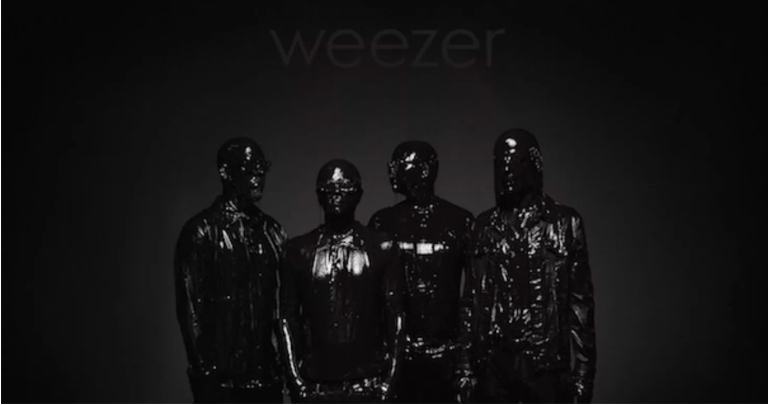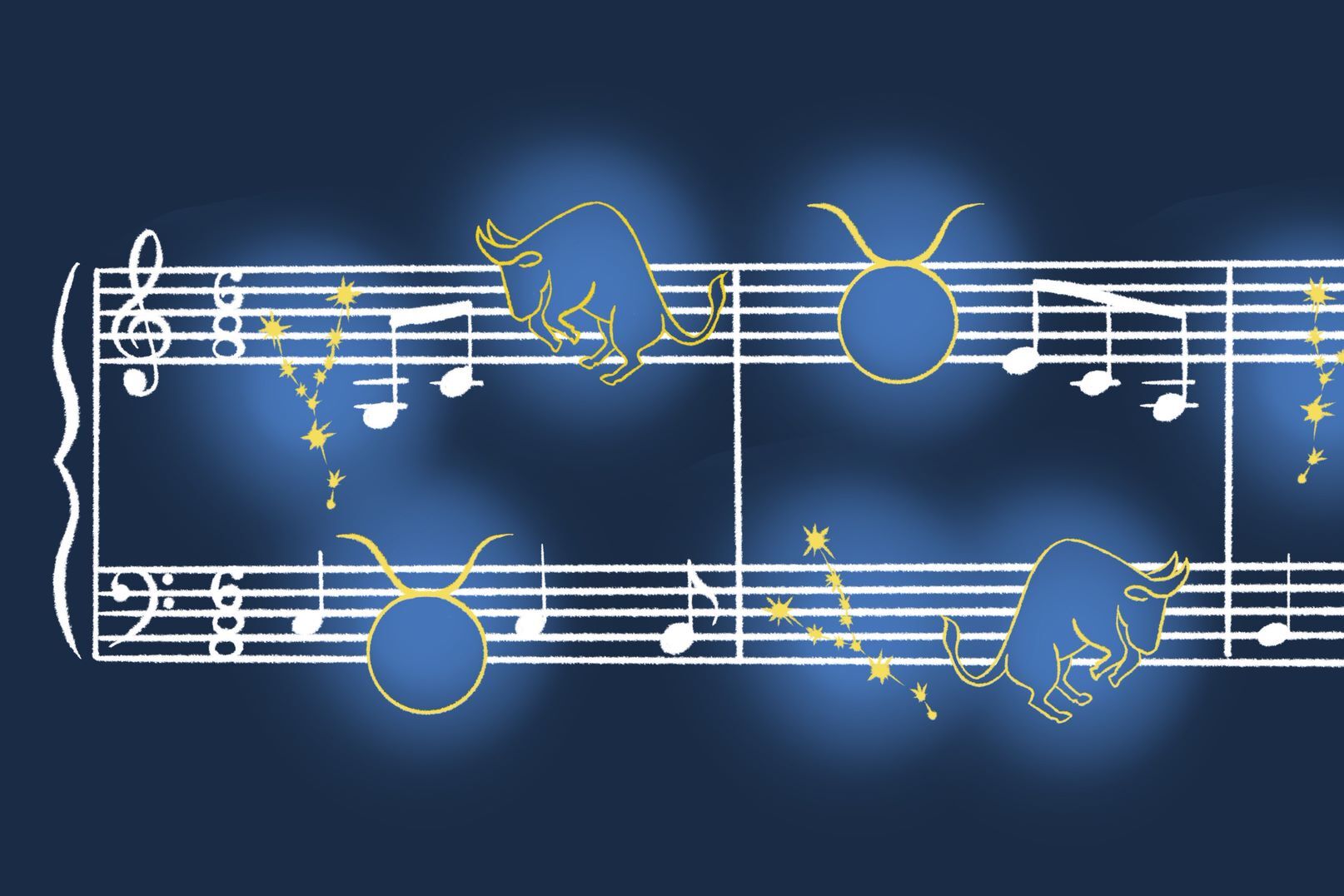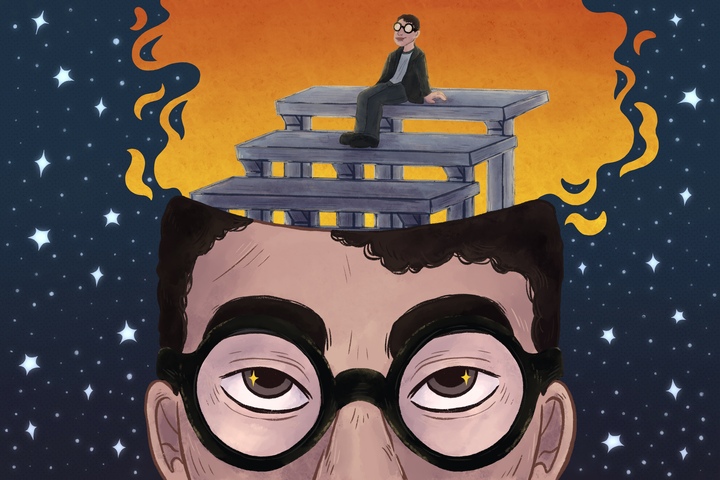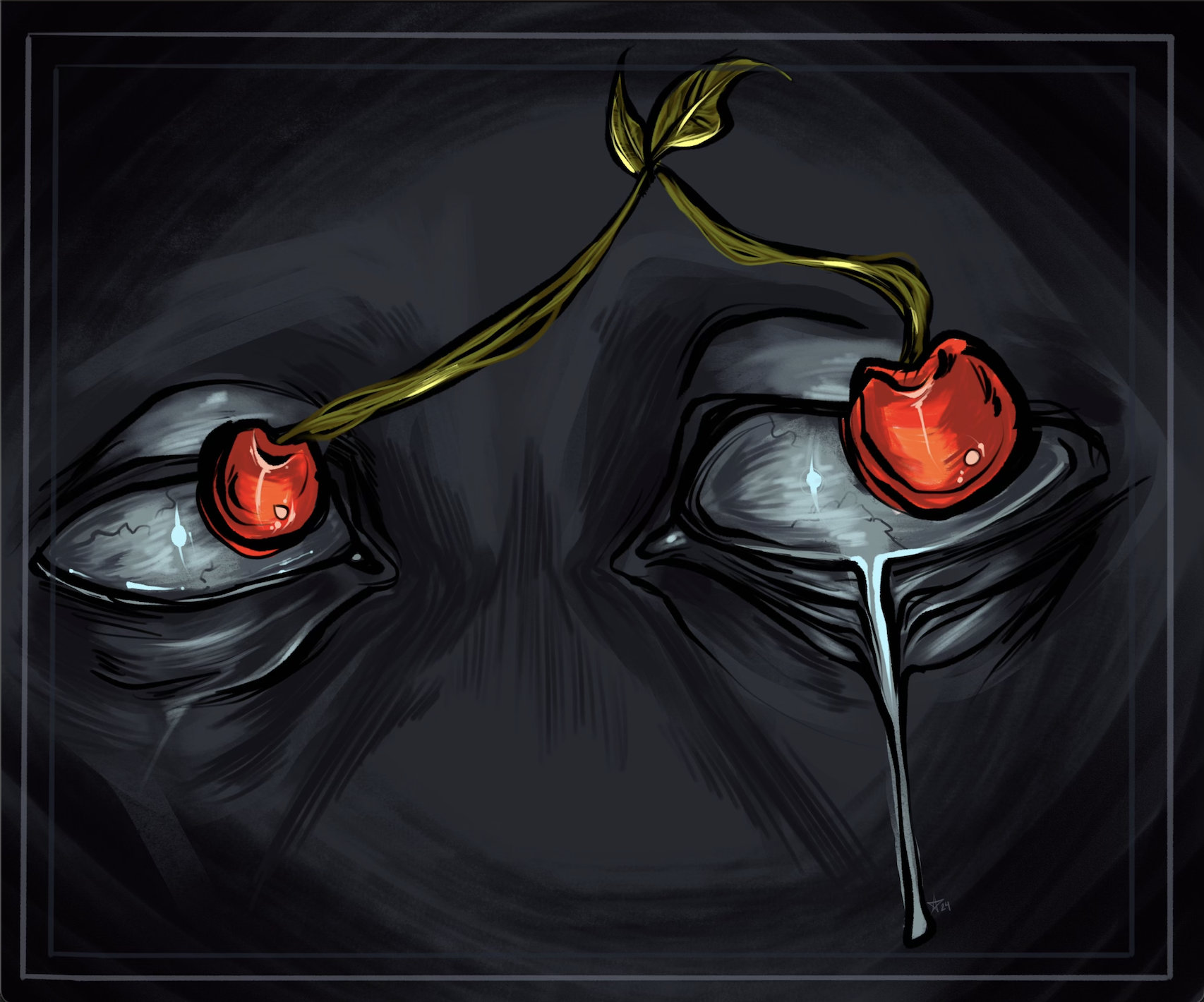When Weezer announces another album, a collective groan from their fans is usually quick to follow. This next iteration of the self-titled color series, Weezer (Black Album) was no exception to fan-fatigue, especially after a release like Pacific Daydream. Unintentionally, the band’s music video for “High As A Kite” demonstrates their dynamic with a certain sect of the fans. Here Rivers and the band are inserted into the world of Mr. Rogers’ Neighborhood–a throwback to the “Buddy Holly” music video, where Weezer performs one of their hits for the cast of Happy Days. The “High As A Kite” video takes a turn, though. At first, the cheery tune keeps the live audience of children and their parents entertained. As the song continues, kids start to yawn as does the drummer of the band. Suddenly, at a darker turn in the song, the studio lights start to flash red and white, and the boys and girls begin to cry and hide their faces in fright. By the end, Weezer has destroyed much of the intricate set and scared away their initially excited audience. Honestly, there’s more to unpack within that particular music video, but the big takeaway is this: Weezer once had something good, and as their career continues on, they’re sort of stomping all over that.
In some ways, Black Album is a return to form. We’re back to the California-infused teen-lyriced rock songs that made the band famous and sparked a revival of faith in some fans with Weezer (White Album). At this point, Weezer’s biggest strength is creating reliably catchy songs. Some of these melodies will crawl their way into the deepest cracks of your brain, popping up at the most inopportune of times. Also, props to Cuomo for having some genuinely heartfelt lyrics. Some of the best moments of the album are when he writes from his own perspective–when he shows his frustration with the notoriously difficult fans, like on “Zombie Bastards”. Even “I’m Just Being Honest” taps into some of the specific difficulties of being a real person instead of vague adolescent archetype. The bridge of “Too Many Thoughts in My Head” took me aback for a moment, wondering if Rivers is okay or not. But, after that brief moment of human connection, it was right back to pop song clichés.
The whole album seems rather overproduced, even in comparison to other more recent projects. It seems that Weezer was trying to do some genre experimentation, but most of those attempts are generally unsuccessful, specifically in the cases of “Byzantine” and the closer, “California Snow”. They both come off as gimmicky and at points, are somewhat annoying. The lyrics are another point of contention; as aforementioned, there are definitive bright spots, but the majority are either trite, boring, cringey, or a harrowing combination of the three. Die-hard Weezer fans probably aren’t going to be excited about this release, but I can’t imagine anyone else really taking to it either.
Despite the overall catchiness of some of these tunes, once the earworm factor fades away, it’s a rather forgettable album. It’s not quite funny enough, and it’s not quite serious enough, so it lands in a no man’s land of emotional and tonal dissonance. Probably the nicest thing to be said about this album is this: for the majority of the songs, it isn’t a terrible listen. It’d actually be a decent album to put on in the background–maybe a good soundtrack to your dad’s barbecue. But the closer you listen, the worse it gets. There are some rewarding momentary highs, but in reality, there are better albums to listen to.
SCAD Radio gives this album a 5/10.



